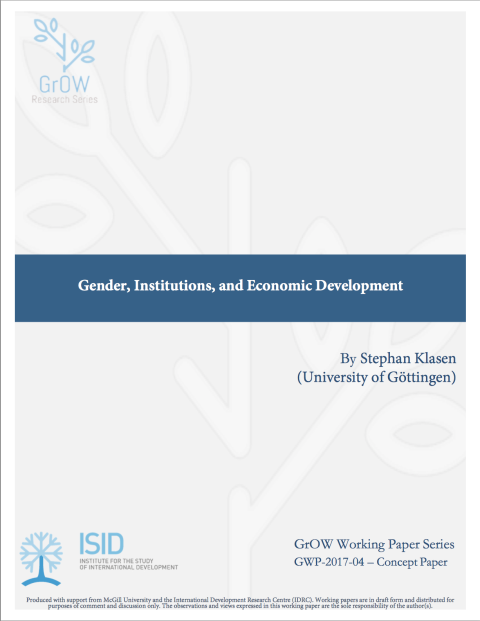This working paper analyses the role that gender relations play as a key institution which governs aspects of production and reproduction of societies. It finds that gender relations are driven by formal institutions and informal norms and values, with great regional heterogeneity in gender inequalities across formal and informal social institutions. The paper also shows that these gender gaps affect gender equity and overall development outcomes. While gender gaps in education and legal rights have closed rapidly, there has been almost no progress in gender gaps related to labour force activity, political participation, health and time use. One significant reason for this is the persistence of discriminatory gender norms.
- Tags:
- Economic empowerment
